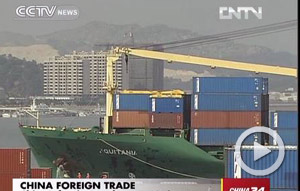A feeling of connection a reason for expats to stay
Updated: 2013-09-09 10:37
By Sun Ye (China Daily)
|
||||||||
Places, like people, are imperfect.
So, how do you decide where to settle down - especially in a foreign land? What cities steal the hearts of expatriates in China? And why?
These were the questions I sought to answer in a marathon of interviews with the State Administration of Foreign Experts Affairs, which is compiling the Most Attractive Chinese Cities for Foreigners list.
To this end, it has also been gathering firsthand accounts and suggestions from expatriates for its annual Amazing China campaign on a China Daily website. Voting ended on Aug 31, and the results will come out in early November.
Every year, the administration examines one or more of the cities expats often list among the country's most habitable. The administration this year focused on Guangzhou, which didn't make the top 10 last year, when Shanghai, Beijing and Shenzhen respectively topped the list. Xiamen ranked ninth and Qingdao took 10th.
But Guangzhou ranked sixth in 2011.
The campaign involves the administration of two-page surveys in which expats check boxes to evaluate various dimensions of the good, the bad and the ugly about their host cities - healthcare, pollution, entertainment options and the like.
The essential question is: Why have you stayed in the Chinese city in which you live?
Emotional attachment turns out to be more important than one might imagine.
Foreigners will leave a Chinese city with good healthcare, schools and tax policies if they don't feel a personal connection. And they'll stick around in a city they have feelings for, despite traffic jams, language barriers and overcrowding.
It's perhaps like relationships with people, in which we often learn to live with the faults of those we love.
Many have highly individual specifications.
"The most important thing expatriates judge a city by is whether you can navigate it by walking," Guangzhou Modern BRT and Sustainable Transport Institute director Karl Fjellstrom says.

 'Despicable' minions upset Depp's 'Lone Ranger' at box office
'Despicable' minions upset Depp's 'Lone Ranger' at box office
 'Taken 2' grabs movie box office crown
'Taken 2' grabs movie box office crown
 Rihanna's 'Diamonds' tops UK pop chart
Rihanna's 'Diamonds' tops UK pop chart
 Fans get look at vintage Rolling Stones
Fans get look at vintage Rolling Stones
 Celebrities attend Power of Women event
Celebrities attend Power of Women event
 Ang Lee breaks 'every rule' to make unlikely new Life of Pi film
Ang Lee breaks 'every rule' to make unlikely new Life of Pi film
 Rihanna almost thrown out of nightclub
Rihanna almost thrown out of nightclub
 'Dark Knight' wins weekend box office
'Dark Knight' wins weekend box office
Most Viewed
Editor's Picks

|

|

|

|

|

|
Today's Top News
DPRK leader has a baby daughter: Rodman
US: Proven link of Assad to gas attack lacking
Li: China pursues sustainable growth
Trending news across China
China-US military ties deepen
Inflation slows to 2.6% in August
Chinese president arrives in Uzbekistan for visit
Hanas seeks gas partners in US
US Weekly

|

|







